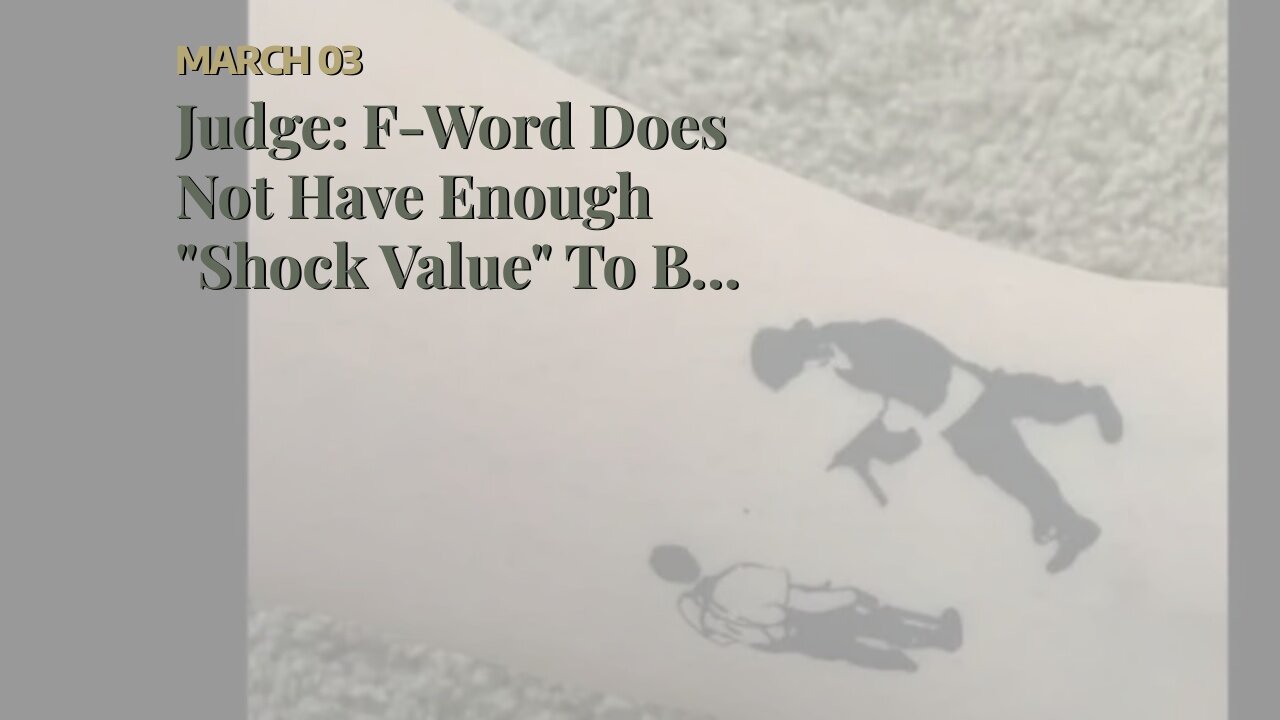Premium Only Content

Judge: F-Word Does Not Have Enough "Shock Value" To Be a Problem at work
Judge: F-Word Does Not Have Enough "Shock Value" To Be a Problem at work
This is an employment tribunal decision in the UK based on specific facts. It should not be considered a general rule that applies to all workplaces. It is possible for an F-bomb to explode with enough force to destroy your hopes of continuing employment. The judge ruled in favor of the plaintiff. Based on 2019 and 2020 events, the claimant alleged that her employer and co-workers had harassed and discriminated against her. The usual dispute arose over whether the problem was the claimant’s job performance or someone else’s inappropriate conduct. However, the facts involving an April 2020 meeting are the...
This is an employment tribunal decision in the UK based on specific facts. It should not be considered a general rule that applies to all workplaces. It is possible for an F-bomb to explode with enough force to destroy your hopes of continuing employment. The judge ruled in favor of the plaintiff. Based on 2019 and 2020 events, the claimant alleged that her employer and co-workers had harassed and discriminated against her. The usual dispute arose over whether the problem was the claimant’s job performance or someone else’s inappropriate conduct. However, the facts involving an April 2020 meeting are the most interesting. This is a good thing, as the tribunal heard 13 witnesses and reviewed more than 4,000 pages worth of documents. None of these facts are relevant here. According to the F-bomb, the claimant claimed she was "undermined" and "belittled" at the meeting by one of the managers. Particularly, she mentioned that Shane was sponsoring a project. The manager replied that Shane didn't care. She then cited this as evidence that she had been unfairly treated. Although the manager denied it, and other witnesses claimed they couldn't remember it, the tribunal believed the claimant. However, this did not make any difference. The Claimant was believable and credible. We don't believe she made it up. We believe the words used are quite commonplace and don't have the shock value that they might in other times. We believe it is something that could have been said, but is not being recalled by [other witnesses] due to its lack of importance at the time. Emphasis added. Final decision by the tribunal was that the claimant had been unfairly dismissed. However, it rejected all of her claims. Unfortunately, the tribunal didn't explain why the word was used by the manager or what evidence it had consulted before coming to its conclusion. We have certainly come a long distance since 1644 when Oliver Cromwell used the word at Battle of Marston Moor, which caused the royal army's fleeing to be forced to flee. The word is now much more commonplace, particularly since 1960, according to this Google Ngram chart. This seems to be roughly in line with a rise of profanity all around: But does the word have any shock value? It is not. This would depend greatly on the context. It is also one reason why its use in official legal proceedings can be quite rare and, partly for that reason, quite often hilarious to me. You can see, for example, "Motion To F*# Yourselves' (Apr. 1, 2022; "Supreme Court Allows Cheerleaders to Use Snapchat" (June 23, 20,21); "[Motion] To F--- This Court And Everything It Stands for'" (Apr. 23.2015, "How to Avoid Jury Duty," (June 23, 2021); "[Motion] to F--- This Court and Everything It Stands For'" (April 4, 2013); "How To Avoid Jury Duty", #10: F Bomb After Being Selected"(Nov. 6, 2008); “Deponent and Counsel jointly sanctioned $367 per F-Bomb” (Mar. 6, 2008). This issue was not addressed in any of the cases I found under my employment law category. "Sugar Plum Fairy Fired For Cursing During Drug Test" (Nov. 16, 2011,). However, there are many examples of how what you say at work can lead to trouble (see, for example, "Things Not to Share with Employees #1-5" (June 10, 2015.). Despite this ruling, the F-word retains enough shock value depending on context. You should not use it in any official or semi-official workplace situation. This is probably why I continue to use "F-word" and "F-bomb" here, even though they are expressive and versatile. This is not a semi-official project for work, but it's better to be safe than sorry.
-
 1:13:56
1:13:56
DeVory Darkins
4 hours agoNewsom SUFFERS MAJOR SETBACK after Trump revokes 17,000 Commercial Drivers Licenses
145K60 -
 1:07:32
1:07:32
Timcast
5 hours agoDemocrats CAUGHT Framing Trump On Epstein, Leaked Emails Show Journalist COLLUSION :+1: 1
175K195 -
 LIVE
LIVE
The Bold Lib
2 hours agoBOLDCHAT: Moms For Liberty | Free Speech w/ANGELA BELCAMINO
64 watching -
 2:11:09
2:11:09
Steven Crowder
7 hours ago🔴 Just Release the Damn Epstein Files - End It Once and For All
527K384 -
 10:06
10:06
VSOGunChannel
4 hours ago $2.29 earnedCongress Tells ATF to Stop Doing the National Firearms Act
18K2 -
 30:40
30:40
The Boomer Effect
19 hours agoNo More Beardos
13K3 -
 1:08:00
1:08:00
Sean Unpaved
4 hours agoMike Vrabel Has Restored The Patriot Way! | UNPAVED
30.1K4 -
 2:04:53
2:04:53
Side Scrollers Podcast
6 hours agoHasan Piker Goes FULL Propaganda + Kirsche & Craig Make “The List” + More | Side Scrollers
31.3K2 -
 2:06:23
2:06:23
Nerdrotic
5 hours ago $3.81 earnedNerdrotic Nooner 533
40.7K4 -
 LIVE
LIVE
GritsGG
5 hours ago#1 Most Warzone Wins 3987+!
40 watching